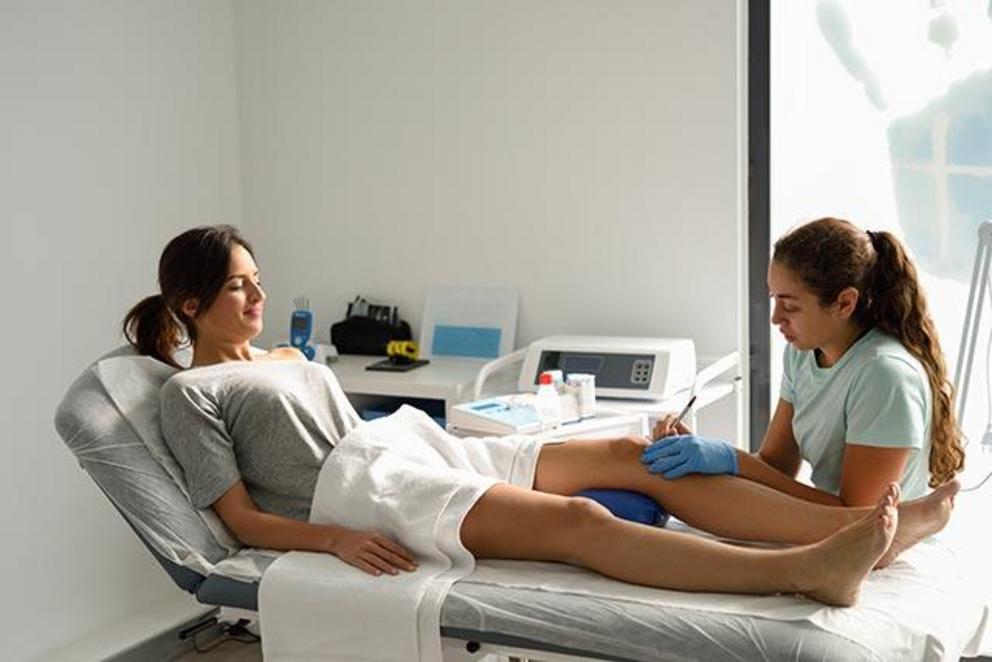Can electroacupuncture improve blood flow to the heart?
Myocardial infarction, more commonly known as a heart attack, occurs when blood flow to the heart decreases or stops, causing damage to the heart muscle. The formation of a blood clot is often implicated in this cardiac event and is strongly associated with atherosclerosis.
Having high levels of cholesterol in the blood often leads to the formation of plaque in the coronary arteries, or the blood vessels that feed the heart. When a plaque pocket ruptures, its contents make contact with blood and triggers the formation of a blood clot. This blood clot is what interrupts blood flow to the heart and destroys a part of the heart muscle, causing a heart attack.
Heart attacks vary in terms of symptoms and severity. While some cases can be improved over time with treatment, others prove fatal.
In a recent study, researchers at Nanjing University of Chinese Medicine in China explored how electroacupuncture can help prevent myocardial infarction. Previous studies have reported that electroacupuncture induces resistance to the loss of blood supply to the heart, much like the experimental technique, ischemic preconditioning.
The researchers discussed the mechanisms underlying the effects of electroacupuncture pretreatment (EP) in an article published in The American Journal of Chinese Medicine.
Electroacupuncture can protect the heart from a sudden heart attack
Electroacupuncture is a slightly modified version of acupuncture, a widely used healing technique in Traditional Chinese Medicine (TCM). In electroacupuncture, a mild electric current is passed between two needles to facilitate stimulation of relevant acupoints.
Research suggests that the current applies more stimulation than any hand manipulation technique used in traditional acupuncture treatment. This modern therapy is often used to relieve chemotherapy-related symptoms, arthritis, pain and stress.
To examine the effects of EP on myocardial infarction, the researchers divided male rats into two groups and subjected one group to EP for three days. On the fourth day, they further divided the groups into four and subjected the animals to either a mock surgery or a real surgery that involved ligation of the left anterior descending coronary artery to induce myocardial infarction.
After 24 hours, they collected blood samples and the animals’ hearts for analysis.
The researchers reported that EP significantly reduced the serum levels of biomarkers of cardiac injury and decreased the area of myocardial infarction damage. Using metabolic profiling, they also identified 636 characteristic peaks, 478 of which corresponded to unidentified heart attack-related metabolites.
The researchers also found that myocardial infarction caused comprehensive metabolic changes in glucose conversion (glycolysis)-related metabolites, malate-aspartate shuttle (MAS) metabolites and purine metabolites with antioxidant functions.
However, EP reversed more than half of these metabolic changes, mainly affecting amino acid and energy metabolism, particularly glutamate metabolism and the mitochondria-related MAS.
Based on these findings, the researchers concluded that electroacupuncture protects against heart attack by regulating amino acid metabolism and energy metabolism.
Other applications of electroacupuncture
Acupuncture and other related healing arts are commonly used today to treat conditions that cause severe pain. Although acupuncture has gained a lot of traction in recent years, electroacupuncture has also attracted attention, particularly for its effectiveness as an alternative treatment for neurological diseases. These include chronic pain, spasms and paralysis.
In addition, electroacupuncture has become common in holistic sports medicine as a treatment for injuries. Reports suggest that when combined with acupressure, electroacupuncture effectively promotes good blood and qi circulation, which is said to relieve pain, warm the muscles and eliminate blood stasis.
However, despite the safety of electroacupuncture, it is not recommended for pregnant women and patients who have a history of seizures or epilepsy. Patients who also have pacemakers are advised not to receive electroacupuncture treatments. If you wish to try electroacupuncture, be sure to approach only a certified or licensed therapist to avoid unwanted side effects.
For full references please use source link below.

